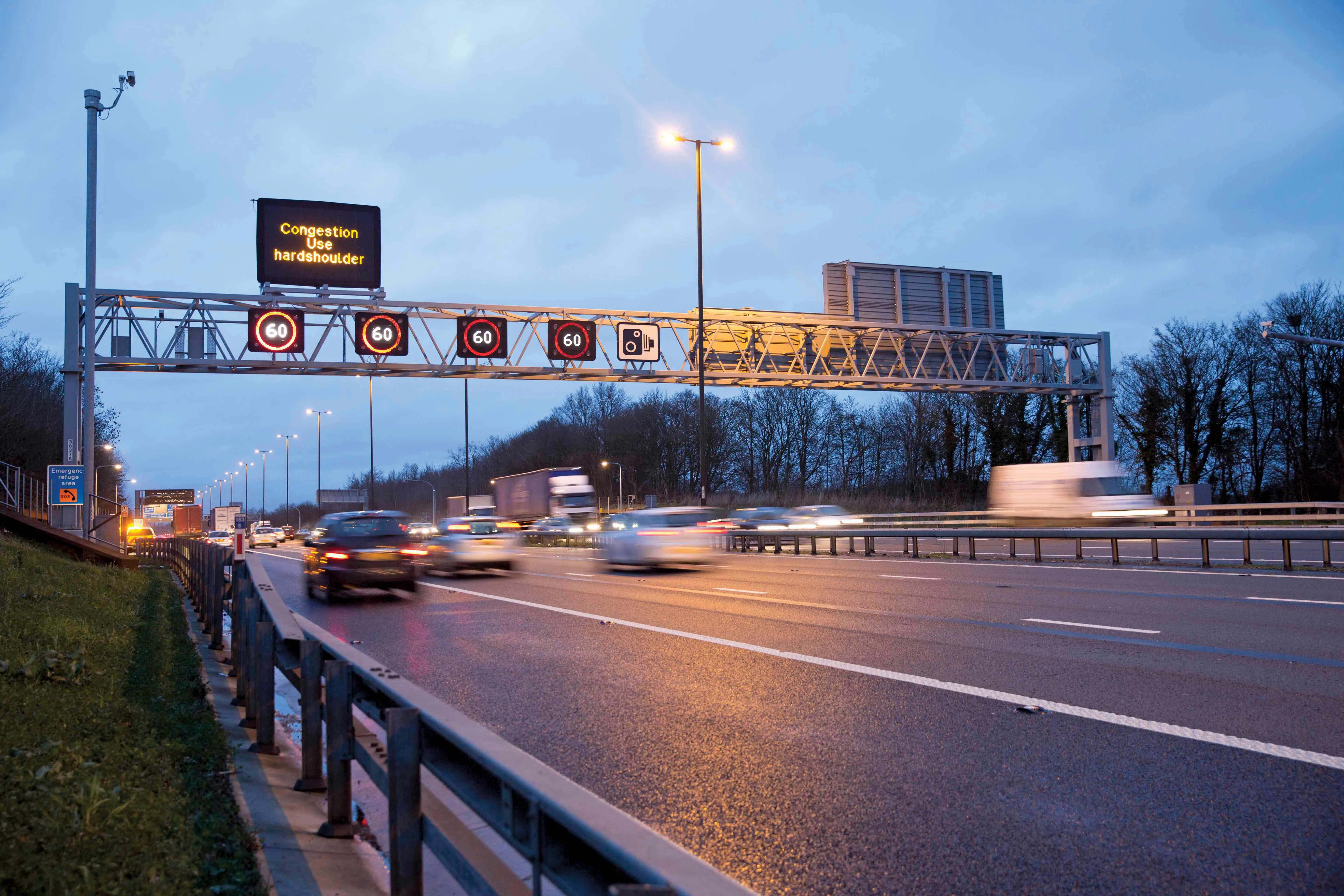The first smart motorway scheme in the UK’s south-west has been officially launched, covering 11km of motorway around the Almondsbury interchange and including junctions 19-20 on the M4 and junctions 15-17 on the M5.
It is designed to help reduce congestion and improve safety and journey times by introducing variable speed limits and opening the hard shoulder during busy traffic periods. The improvements to the M4 and M5 use a range of technologies and operational systems to reduce congestion and smooth t
February 19, 2014
Read time: 2 mins

The first smart motorway scheme in the UK’s south-west has been officially launched, covering 11km of motorway around the Almondsbury interchange and including junctions 19-20 on the M4 and junctions 15-17 on the M5.
It is designed to help reduce congestion and improve safety and journey times by introducing variable speed limits and opening the hard shoulder during busy traffic periods. The improvements to the M4 and M5 use a range of technologies and operational systems to reduce congestion and smooth the flow of traffic. During busy periods, traffic officers in the regional control centre at Avonmouth will set overhead message signs to inform drivers they can use the hard shoulder as an extra lane and at what speed to drive.
2309 Highways Agency senior project manager Paul Unwin said: “The M4 and M5 scheme demonstrates how a smart and efficient solution can deliver improvements that road users need – more capacity and better management of traffic to reduce congestion and make journey times more reliable.”
It is designed to help reduce congestion and improve safety and journey times by introducing variable speed limits and opening the hard shoulder during busy traffic periods. The improvements to the M4 and M5 use a range of technologies and operational systems to reduce congestion and smooth the flow of traffic. During busy periods, traffic officers in the regional control centre at Avonmouth will set overhead message signs to inform drivers they can use the hard shoulder as an extra lane and at what speed to drive.









